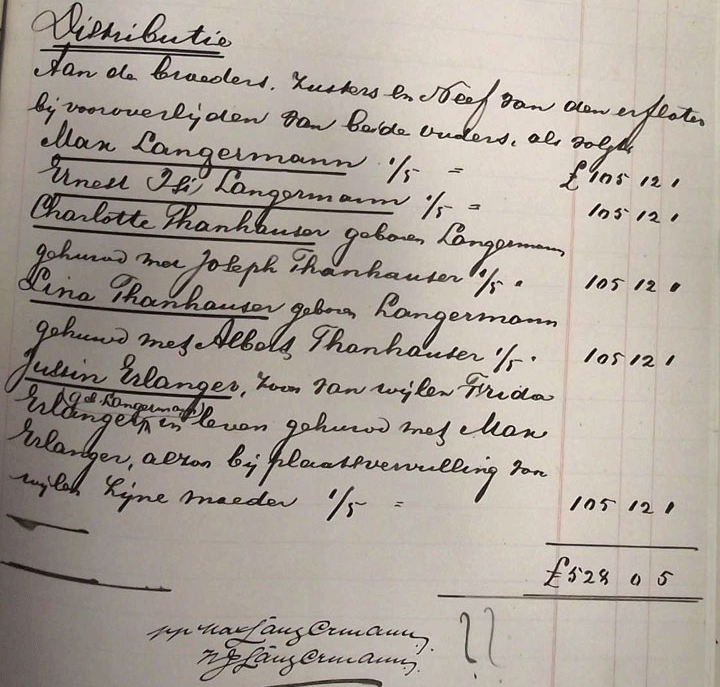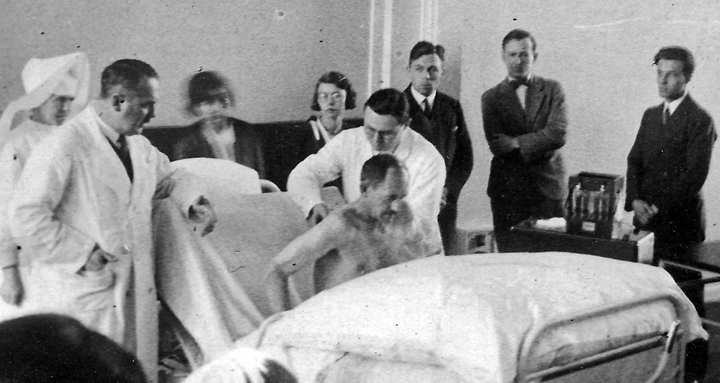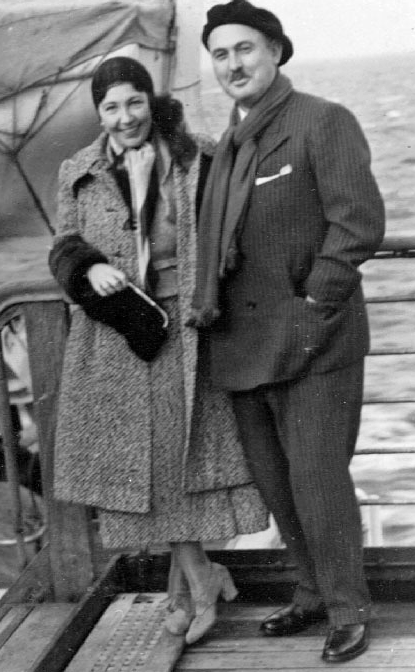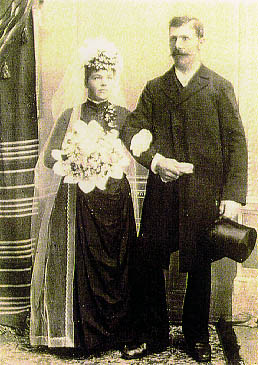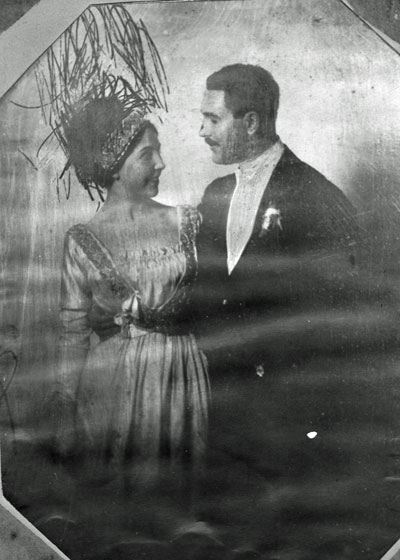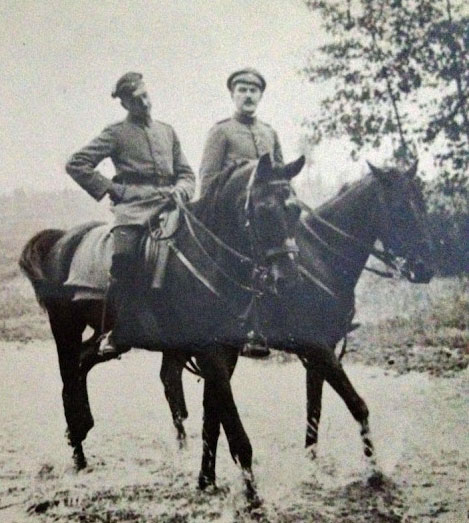Recently my maternal aunts, cousins and I had a strong DNA match at 23andme to a woman whose name was not familiar to me, Sharon, born in South Africa. This was exciting because I had thought that I had no family left there. I knew that my Jewish great grandmother Charlotte Langermann Thannhauser had had three brothers who went off to South Africa to make their fortunes. None of whom were thought to have any living descendants.
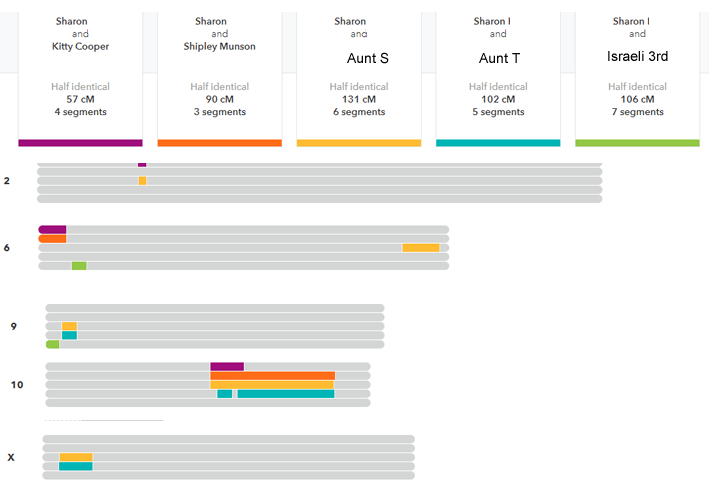
Extracts from the chromosome browser at 23andme comparing Sharon to my family
One of the brothers, Max Langermann, of Johannesburg and London, did become very rich but had no children of his own. Another, Jakob, also of Johannesburg, died in his 30s in 1898, unmarried, and his will names his five living siblings at that time as his heirs, each of whom received 105 pounds (about $20K today). The third brother, (Ernst) Isador, died in his early 40s, on board ship returning from India to his home in Salisbury, Southern Rhodesia (now Harere, Zimbabwe). His son Frederick was adopted by Max. My mother had told me that Fred was Jakob’s son but since Jakob died a few years before Frederick’s birth, that could not be. Documents I found seemed to indicate that Fred was Isador’s son but Frederick had no children of his own, So who could this new relative be descended from?
Since Sharon was listed as 28% Jewish and her mother has no Jewish DNA, she deduced that her father’s mother, whose name she did not know, had to have been Jewish. I sent her my Langermann family tree. Sharon consulted with her mother and sent me this:
